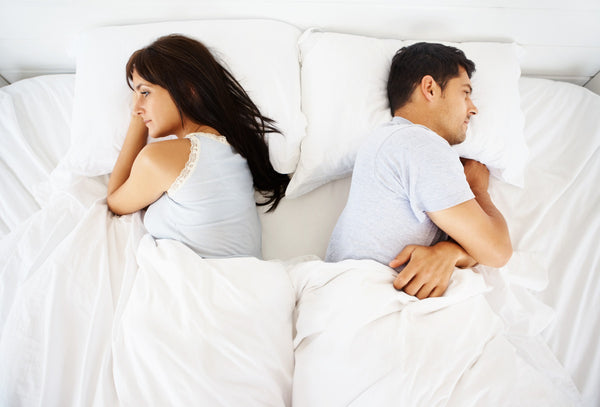How Snoring Reduces Your Resistance to Diseases.
An increased rate of gout occurs to people suffering from sleep apnea.
15,879 OSA patients and 63,296 healthy adults have been analyzed by the researchers from Keele University. The participants were monitored for around six years.
4.9 % of the OSA patients have developed gout compared to just 2.6 percent of those without it, making those with OSA 42 percent more at risk according to the results published in the journal Arthritis and Rheumatology.

Between one or two years after developing OSA, the patients went on to get gout It can take up to five years for symptoms to appear.
Lead author Dr Edward Roddy reported that people with sleep apnea are at an increased risk of gout in both the short and long term.
Other health professionals should consider the possibility of gout in patients with sleep apnea. This risk is highest in people with normal body mass index.
Gout can be erased through the treatment of sleep apnea
The proper treatment of OSA also helps to ease gout, the researchers believe. With CPAP therapy, sleep apnea is also treated as stated by Dr Milica Blagojevic Bucknall.
It also is expected to reduce the risk of developing gout or treat existing gout as the CPAP treatment corrects low oxygen levels and it might also be expected to reduce uric acid levels.
In order to investigate the effect of treatment with CPAP in people with gout further research is required. The CPAP therapy has the patient connected to a machine that blows air under low pressure continually into the back of the throat as the patient lies in bed.

OSA might be caused by missing teeth
Other research suggests people who look after their teeth are less likely to suffer from insomnia due to their risk of OSA being reduced.
A study of pensioners by Tohoku University Japan, saw some with less than ten teeth getting less than four hours sleep. Pensioners with less than 10 teeth often do not get the recommended seven hours of sleep a night.
Understanding Obstructive Sleep Apnea
When the walls of a person’s throat relaxes and narrows during sleep blocking their airways, obstructive sleep apnea occurs.
With symptoms including loud snoring, noisy and labored breathing and repeated episodes when breathing is punctuated by gasping and snoring. In UK, OSA affects between four and 10 percent people. Around 22 million are affected in US.
During an episode the lack of oxygen triggers a sufferer’s brain to pull them out of deep sleep so that their airways reopen . With the patient often being unaware of the problem these repeated sleep interruptions can make the person very tired.
Risks included in OSA:
- Excessive body fat
- Being male
- Being 40 or over
- Having a large neck
- Drinking excessive amount of alcohol
- Being in the menopause
Losing weight if necessary and avoiding alcohol is all included in the treatment under the heading of required lifestyle changes.
Continuous positive airway pressure devices prevent the airway closing by delivering a continuous supply of compressed air through a mask.
A tongue control device which holds the jaw and tongue forward to increase the space at the back of the throat can also be used.

A person has a higher risk of high blood pressure, stroke, heart attacks and two types of diabetes with untreated OSA.
Snoring happens when your airway is partly blocked . You need to know why your airway is blocked in order to cure your sleep disorder so look for a device that can help with your problem.
For people who only snore occasionally, stop snoring devices are not intended for them. You are likely to snore when you are cold for instance. If you snore night after night you have a serious problem and the devices are meant for you.
The fact that your tongue curls back when you are sleeping or your lower jaw drops back, thus restricting your air passages, are possible reasons for your snoring.
Certainly, you can rest easily since there are stop snoring devices that can put your jaw, tongue and soft palate back in their proper locations if this is why you snore.
Sleeping on your side, mouth guards and sleep position monitors are the anti-snoring aids that can facilitate keeping the body parts in position.
Avoiding alcohol consumption close to bedtime can help with snoring as alcohol further relaxes the muscles in the back of the throat and can worsen both snoring and increase the risk of developing sleep apnea.

Specifically, if you are not sleeping alone in your room, you can leave out the sleep monitor on the list of stop snoring devices. This will only further the annoyance of your bedmate because the device is noisy.
Although your family is not sleeping in the same room with you if you snore very loud it can wake up your entire family.
Lessening your weight especially if you are obese is one of the things which you should also take into consideration. Your air passages will work harder and noisier with excess body fats in your body restricting the air flow and causing you to snore.
